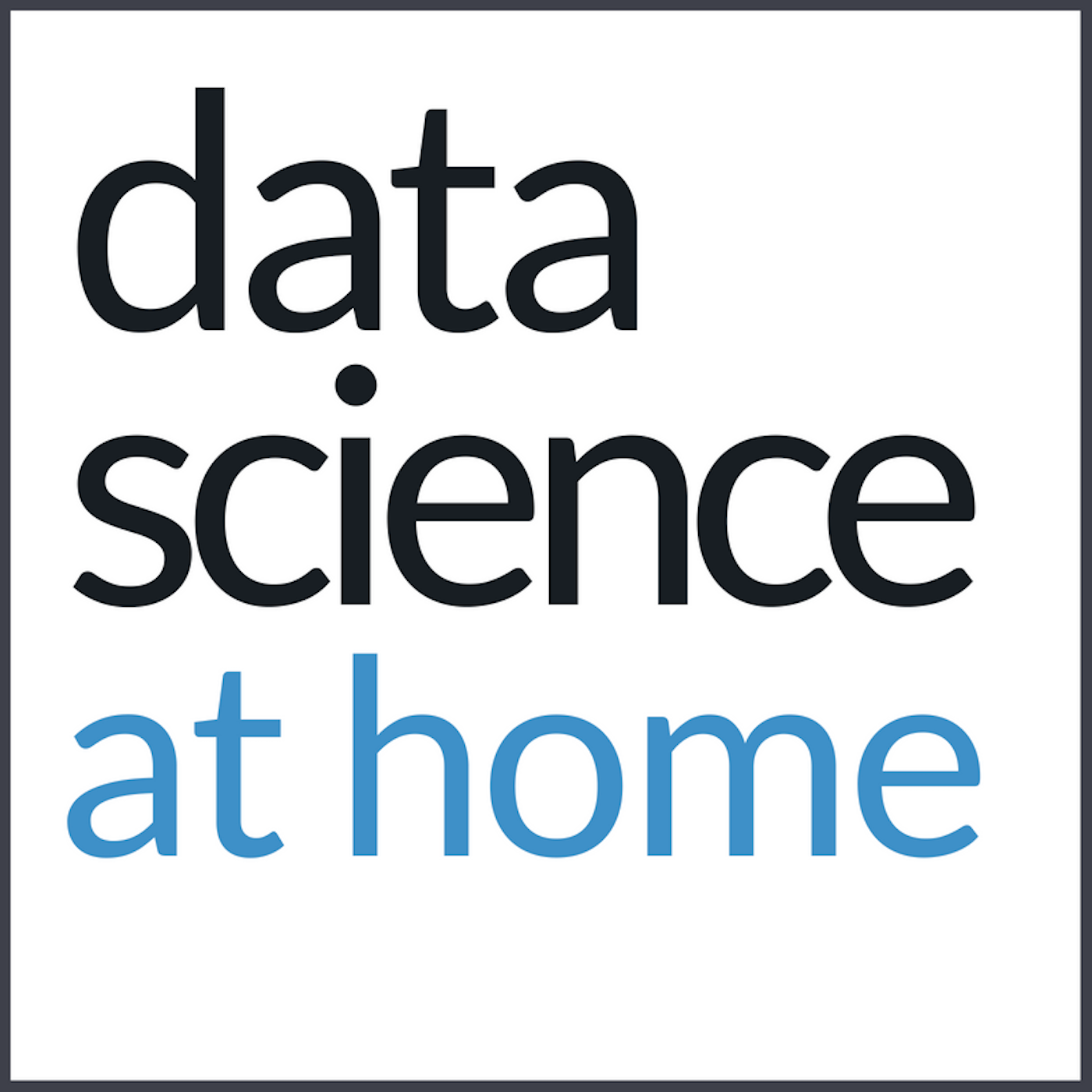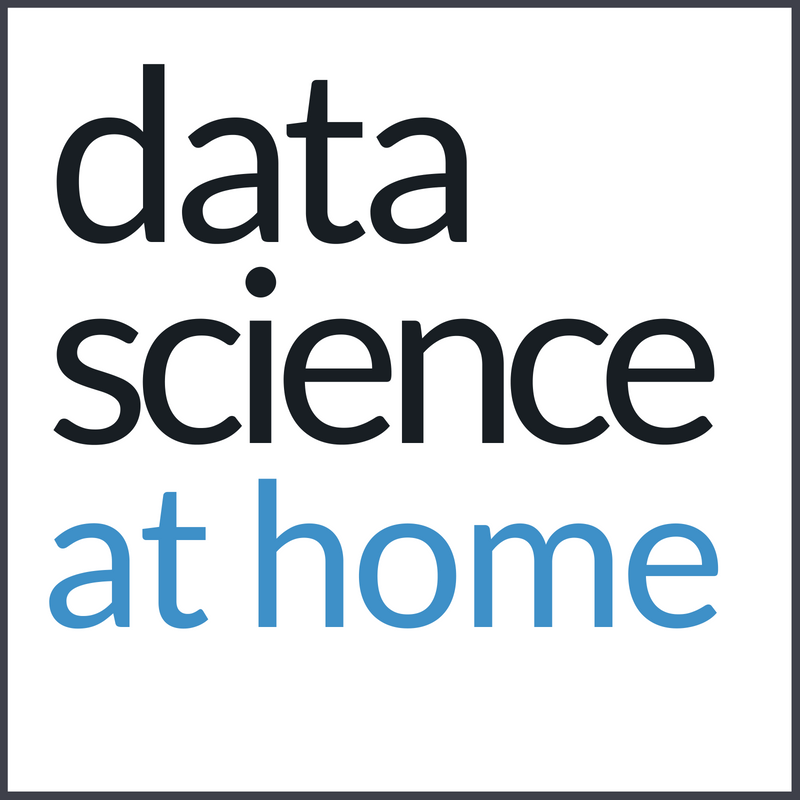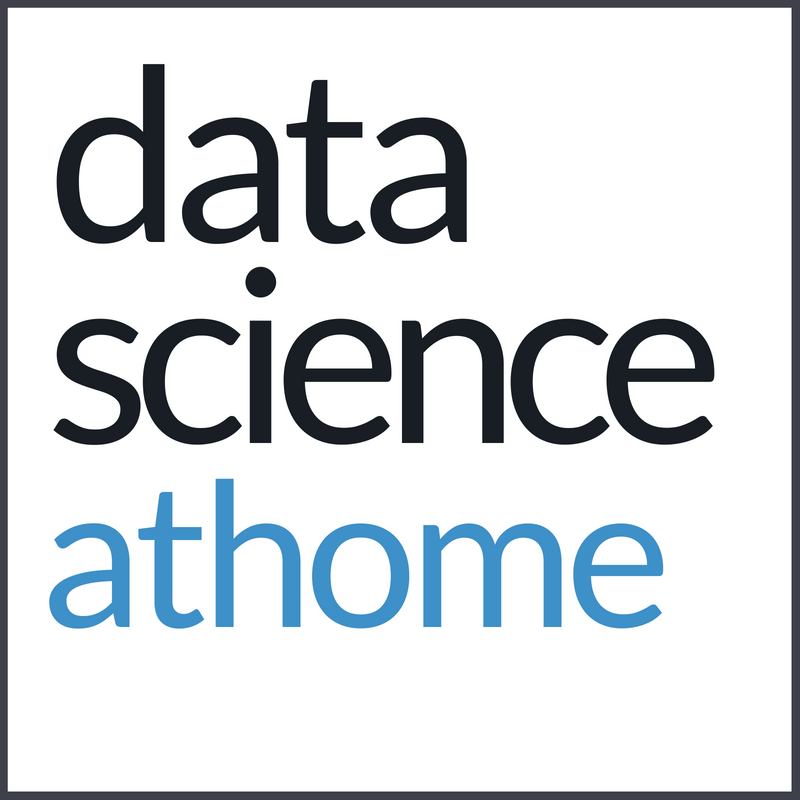About this Show
Data Science at Home is a podcast about machine learning, artificial intelligence and algorithms.
The show is hosted by Dr. Francesco Gadaleta on solo episodes and interviews with some of the most influential figures in the field
Cutting through AI bullsh*t.
Come join the discussion on Discord!
https://discord.gg/4UNKGf3
Cutting through AI bullsh*t.
Come join the discussion on Discord!
https://discord.gg/4UNKGf3

Tuesday Jul 24, 2018
Tuesday Jul 24, 2018
Tuesday Jul 24, 2018
Today’s episode will be about deep learning and compression of data, and in particular compressing images. We all know how important compressing data is, reducing the size of digital objects without affecting the quality. As a very general rule, the more one compresses an image the lower the quality, due to a number of factors like bitrate, quantization error, etcetera. I am glad to be here with Tong Chen, researcher at the School of electronic Science and Engineering of Nanjing University, China.
Tong developed a deep learning based compression algorithm for images, that seems to improve over state of the art approaches like BPG, JPEG2000 and JPEG.
Reference
Deep Image Compression via End-to-End Learning - Haojie Liu, Tong Chen, Qiu Shen, Tao Yue, and Zhan Ma School of Electronic Science and Engineering, Nanjing University, Jiangsu, China

Thursday Jul 19, 2018
Thursday Jul 19, 2018
Thursday Jul 19, 2018
In this episode I explain the differences between L1 and L2 regularization that you can find in function minimization in basically any machine learning model.

Tuesday Jul 17, 2018
Tuesday Jul 17, 2018
Tuesday Jul 17, 2018
In the second part of this episode I am interviewing Johannes Castner from CollectiWise, a platform for collective intelligence. I am moving the conversation towards the more practical aspects of the project, asking about the centralised AGI and blockchain components that are essential part of the platform.
References
Opencog.orgThaler, Richard H., Sunstein, Cass R. and Balz, John P. (April 2, 2010). "Choice Architecture". doi:10.2139/ssrn.1583509. SSRN 1583509
Teschner, F., Rothschild, D. & Gimpel, H. Group Decis Negot (2017) 26: 953. https://doi.org/10.1007/s10726-017-9531-0
Firas Khatib, Frank DiMaio, Foldit Contenders Group, Foldit Void Crushers Group, Seth Cooper, Maciej Kazmierczyk, Miroslaw Gilski, Szymon Krzywda, Helena Zabranska, Iva Pichova, James Thompson, Zoran Popović, Mariusz Jaskolski & David Baker, Crystal structure of a monomeric retroviral protease solved by protein folding game players, Nature Structural & Molecular Biology volume18, pages1175–1177 (2011)
Rosenthal, Franz; Dawood, Nessim Yosef David (1969). The Muqaddimah : an introduction to history ; in three volumes. 1. Princeton University Press. ISBN 0-691-01754-9.
Kevin J. Boudreau and Karim R. Lakhani, Using the Crowd as an Innovation Partner, April 2013.
Sam Bowles, The Moral Economy: Why Good Incentives are No Substitute for Good Citizens.Amartya K. Sen, Rational Fools: A Critique of the Behavioral Foundations of Economic Theory, Philosophy & Public Affairs, Vol. 6, No. 4 (Summer, 1977), pp. 317-344, Published by: Wiley, Stable URL: http://www.jstor.org/stable/2264946

Thursday Jul 12, 2018
Thursday Jul 12, 2018
Thursday Jul 12, 2018
This is the first part of the amazing episode with Johannes Castner, CEO and founder of CollectiWise. Johannes is finishing his PhD in Sustainable Development from Columbia University in New York City, and he is building a platform for collective intelligence. Today we talk about artificial general intelligence and wisdom.
All references and shownotes will be published after the next episode.Enjoy and stay tuned!

Monday Jul 09, 2018
Monday Jul 09, 2018
Monday Jul 09, 2018
Predicting the weather is one of the most challenging tasks in machine learning due to the fact that physical phenomena are dynamic and riche of events. Moreover, most of traditional approaches to climate forecast are computationally prohibitive. It seems that a joint research between the Earth System Science at the University of California, Irvine and the faculty of Physics at LMU Munich has an interesting improvement on the scalability and accuracy of climate predictive modeling. The solution is... superparameterization and deep learning.
References
Could Machine Learning Break the Convection Parameterization Deadlock?
Gentine, M. Pritchard, S. Rasp, G. Reinaudi, and G. Yacalis Earth and Environmental Engineering, Columbia University, New York, NY, USA, Earth System Science, University of California, Irvine, CA, USA, Faculty of Physics, LMU Munich, Munich, Germany

Tuesday Jul 03, 2018
Tuesday Jul 03, 2018
Tuesday Jul 03, 2018
Humans seem to have reached a cross-point, where they are asked to choose between functionality and privacy. But not both. Not both at all. No data, no service. That’s what companies building personal finance services say. The same applies to marketing companies, social media companies, search engine companies, and healthcare institutions.
In this episode I speak about the reasons to aggregate data for precision medicine, the consequences of such strategies and how can researchers and organizations provide services to individuals while respecting their privacy.

Friday Jun 29, 2018
Friday Jun 29, 2018
Friday Jun 29, 2018
Attacking deep learning models
Compromising AI for fun and profit
Deep learning models have shown very promising results in computer vision and sound recognition. As more and more deep learning based systems get integrated in disparate domains, they will keep affecting the life of people. Autonomous vehicles, medical imaging and banking applications, surveillance cameras and drones, digital assistants, are only a few real applications where deep learning plays a fundamental role. A malfunction in any of these applications will affect the quality of such integrated systems and compromise the security of the individuals who directly or indirectly use them.
In this episode, we explain how machine learning models can be attacked and what we can do to protect intelligent systems from being compromised.

Friday Jun 22, 2018
Friday Jun 22, 2018
Friday Jun 22, 2018
Today I am having a conversation with Filip Piękniewski, researcher working on computer vision and AI at Koh Young Research America. His adventure with AI started in the 90s and since then a long list of experiences at the intersection of computer science and physics, led him to the conclusion that deep learning might not be sufficient nor appropriate to solve the problem of intelligence, specifically artificial intelligence. I read some of his publications and got familiar with some of his ideas. Honestly, I have been attracted by the fact that Filip does not buy the hype around AI and deep learning in particular. He doesn’t seem to share the vision of folks like Elon Musk who claimed that we are going to see an exponential improvement in self driving cars among other things (he actually said that before a Tesla drove over a pedestrian).

Monday Jun 11, 2018
Monday Jun 11, 2018
Monday Jun 11, 2018
In the attempt of democratizing machine learning, data scientists should have the possibility to train their models on data they do not necessarily own, nor see. A model that is privately trained should be verified and uniquely identified across its entire life cycle, from its random initialization to setting the optimal values of its parameters.How does blockchain allow all this? Fitchain is the decentralized machine learning platform that provides models an identity and a certification of their training procedure, the proof-of-train

Monday Jun 04, 2018
Monday Jun 04, 2018
Monday Jun 04, 2018
I know, I have been away too long without publishing much in the last 3 months. But, there's a reason for that. I have been building a platform that combines machine learning with blockchain technology. Let me introduce you to fitchain and tell you more in this episode.
If you want to collaborate on the project or just think it's interesting, drop me a line on the contact page at fitchain.io

Data Science at Home is the top-10 best data science podcasts on Apple Podcasts, Spotify, Stitcher, Podbean and many more aggregators.
We reach our audience on a weekly basis via 30-minute episodes enriched with blog posts and show notes. Our episodes reach a highly targeted audience across a wide demographics and globally distributed.
Data Science at home currently accepts at most two advertising slots per episode. The scheduled episode for your advertising campaign will be defined by our team, depending on the topic and the current advertising queue.
Our team is available to give you recommendations about your application and to discuss rates. Please send a direct email to media@amethix.com to make first contact. After connecting, we will share the best available date for you to proceed with the onboarding.
We promote services and products related to IT, Internet services, Research, Data Science, Machine learning, Fintech and Banking, Healthcare, Energy, etc. Below are some of the most recent statistics of the show.
Contact us and let’s talk about how we can help get your message to the audience of Data Science at Home podcast.
Data Science at Home is a podcast about machine learning, artificial intelligence and algorithms.
The show is hosted by Dr. Francesco Gadaleta on solo episodes and interviews with some of the most influential figures in the field